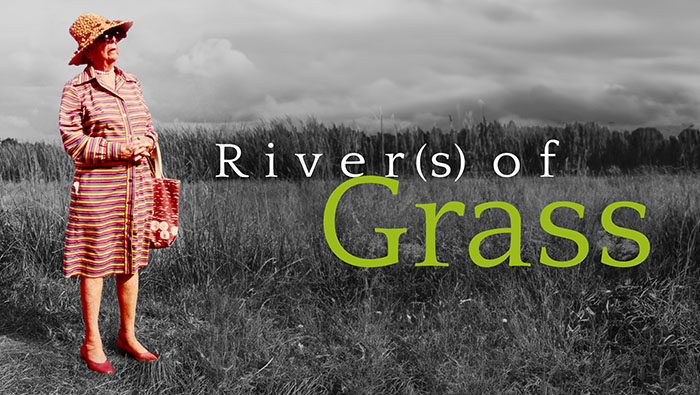
River(s) of Grass: The Enduring Legacies of Marjory Stoneman Douglas
Fall 2023 – Fall 2024
Kislak Center at the University of Miami
Marjory Stoneman Douglas has often been described as the Voice of the Everglades. As a stalwart and outspoken voice for environmentalism and social activism across South Florida, her influence was unparalleled in helping to promote understanding, appreciation, and preservation of this unique ecosystem, as well as promoting human rights, respect, and understanding among and between its residents. Living to the age of 108, she is instantly recognizable in photographs as an almost mythic figure, a tiny woman in a wide-brimmed hat and thick glasses, almost intrinsically connected with the environment that would form so much a part of her life and her character. Stoneman Douglas’s profound influence on the South Florida landscape she so intimately understood, and by which she was so captivated, cannot be overstated. The profound effects of her early efforts, and the inspirational influence of her unconventional life, have continued to flow down to us as legacies that we are now charged with protecting in our own time.
Coming of age during a time when the subtleties of social pressures required a woman to wed and raise children, and not much more, Marjory seemed destined for other things. She moved to Florida from New England after a tumultuous childhood and youth, peppered with family drama and her own youthful marriage and divorce. She would live in Florida for the rest of her long life, taking on the formidable work of a journalist and novelist, and eventually she would gain notoriety as an outspoken underdog, often succeeding as the voice of reason amid the frenetic race of the powerful to develop the state of Florida. She was a master of the written word, an advocate for environmental protection and humane treatment of all people, and a walking contradiction: both ahead of her time and old-fashioned, hailing from an upper-class social circle not typically concerned with such things (but perhaps succeeding in her activism because of her insider’s perspective of the upper classes), coupled with first-hand knowledge of difficulties and overcoming hardship. People described her as shrewd, sharp-tongued, stubbornly independent, talented, but a friend in the fight for any cause she believed in.
Marjory led a life interwoven with challenges and persistence, and her experiences led her on a journey that would cause her to question the basic constructs of “the way things were,” such as land-use and ownership, the concept of the greater good and its extension to future generations, as well as the place a woman could occupy in politics, law, literature, and the community. This exhibit aims to show not only who Marjory Stoneman Douglas was, from youth to old age, and the accomplishments, activities, and wit that came naturally from such a person, but also the many legacies she established and the ways they have carried through to the present day through the gentle strength of such South Florida organizations as Everglades National Park, Friends of the Everglades, local Indigenous communities and civil rights organizations, local and national artists, and the efforts of countless other individuals across South Florida.
The unique and varied materials displayed in the Kislak Center for this exhibition are all drawn from the Archives and Special Collections at the University of Miami, and the related event on November 30, 2023, will shed light on all intrinsically linked environmental conservation efforts as they appear in Special Collections and in the communities it serves and interacts with.
The largest jewel in Marjory’s crown was undoubtedly her book about the beauty and importance of the Everglades, River of Grass, which became a bestseller when it went to print 75 years ago. This milestone anniversary is celebrated not only through this exhibit but also by a showcase of talks, (in person and online) in which Special Collections hopes to engage students, community members, Indigenous groups, civil rights advocates, and local conservation stalwarts, the new reverent powers that keep exploitation of the natural world in check– as a reminder and a continuing challenge to ensure that we keep the many “River(s) of Grass” set in motion by Stoneman Douglas flowing for future generations.